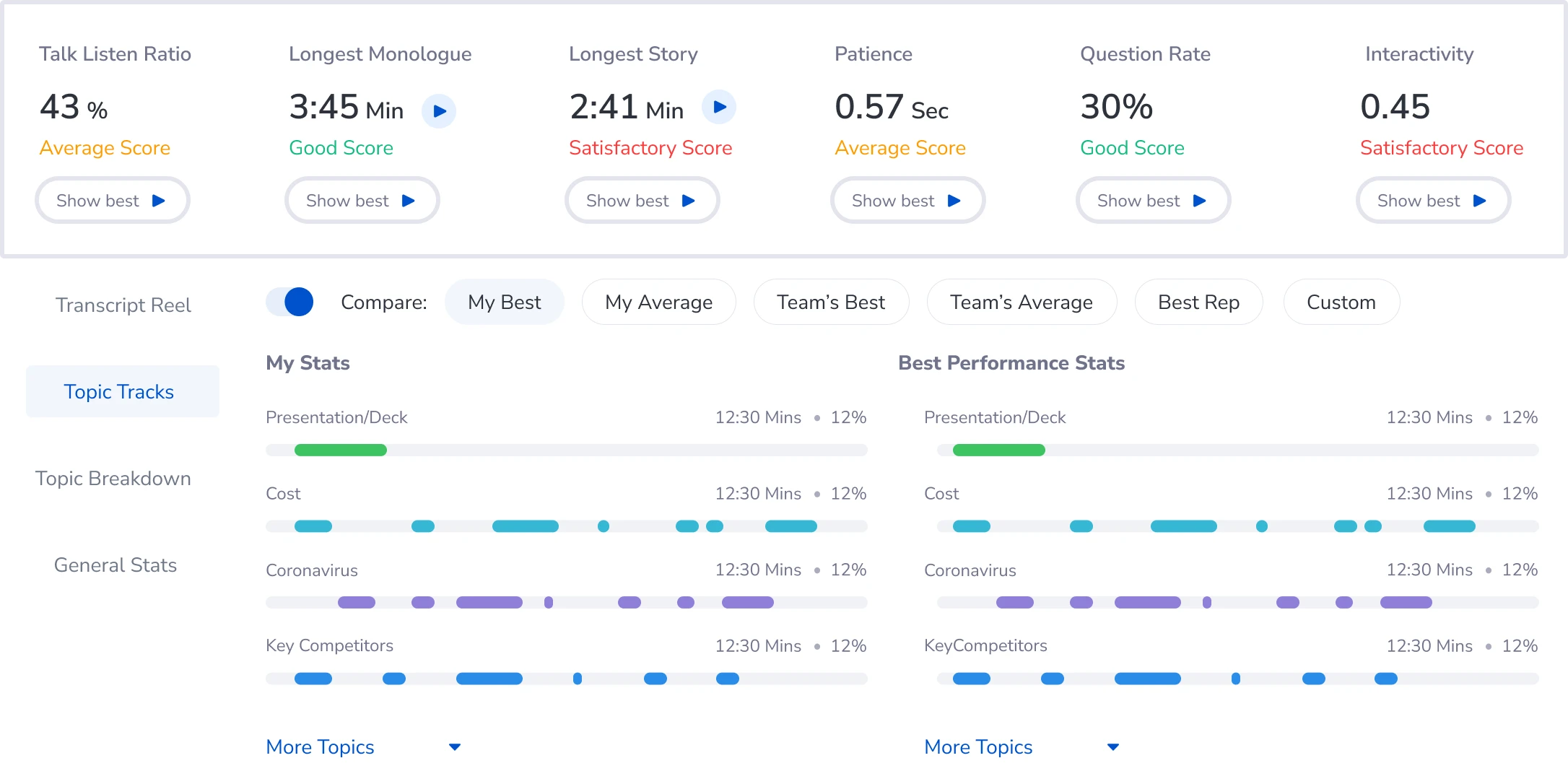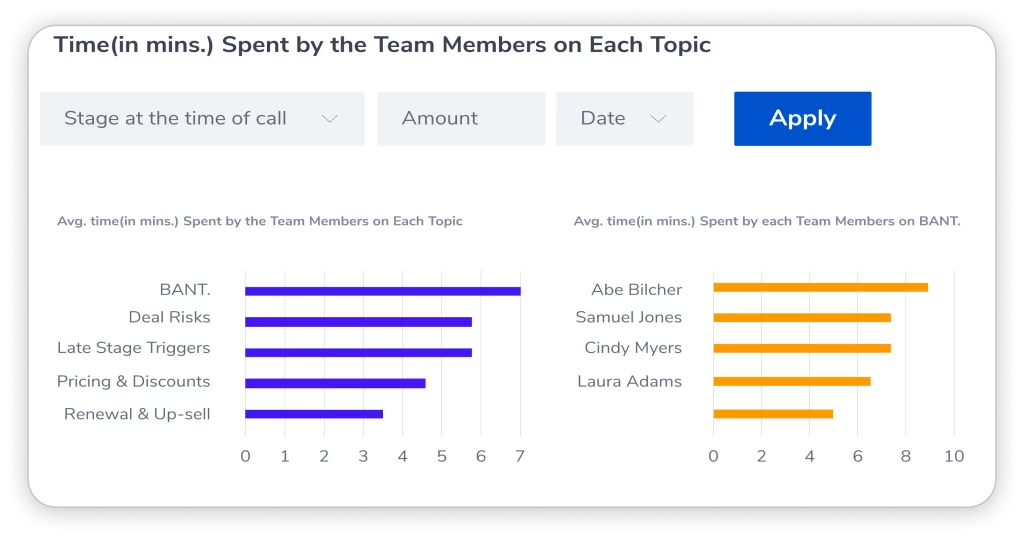Your Short Guide to Sales Coaching
Sales coaching is a powerful tool for enhancing the performance of sales teams. By providing personalized guidance and targeted skill development, sales coaching enables reps to unleash their full potential and achieve exceptional results. The key to unlocking the benefits of sales coaching lies in understanding its role in driving sales success, as well as implementing effective strategies tailored to individual needs and team dynamics.
In a 2021 survey, 96% of respondents either agreed or strongly agreed that effective sales coaching positively impacted their sales rep's performance.
Reaping the Rewards of Sales Coaching
Investing in sales coaching can bring about significant benefits that extend beyond the immediate improvement of sales performance. By fostering a culture of continuous learning and growth, sales coaching can lead to increased revenue, higher employee retention rates, and more effective utilization of sales training resources.
One of the most tangible benefits of sales coaching is the increase in revenue and deal closures. By providing personalized guidance and targeted skill development, sales coaching equips reps with the tools they need to close deals more effectively and efficiently. This translates to a direct impact on the bottom line, making sales coaching a worthwhile investment for organizations looking to boost their sales performance.
In addition to driving revenue growth, sales coaching can also contribute to improved employee retention rates. When sales reps feel supported and empowered to grow their skills, they are more likely to remain engaged and committed to the organization. This, in turn, reduces the costs associated with employee turnover and ensures that the company retains top talent.

Furthermore, sales coaching promotes the sharing of best practices among sales teams. As sales reps learn from each other's experiences and insights, they can collectively refine their sales techniques and strategies. This collaborative approach fosters a culture of continuous improvement and helps teams stay ahead of the competition.
Finally, sales coaching can maximize the return on investment in sales training programs. By reinforcing and building upon the knowledge gained through formal training, sales coaching ensures that reps are able to fully capitalize on the resources provided to them. This, in turn, leads to a more effective salesforce and greater overall success for the organization.
Embracing Effective Models and Strategies
Implementing successful sales coaching requires a tailored approach that addresses the unique needs of each sales rep. This can be achieved through iterative, individualized, and inclusive coaching strategies that monitor performance, provide essential tools and skills, and analyze various aspects of sales interactions.
An iterative approach to sales coaching emphasizes continuous improvement and adaptation. By regularly reviewing and assessing each rep's performance, coaches can identify areas for growth and provide targeted feedback to help reps hone their skills over time. This process ensures that coaching remains relevant and effective, even as the sales landscape evolves.
Individualized coaching focuses on the specific needs and strengths of each sales rep. By closely monitoring individual performance, coaches can tailor their guidance and support to address each rep's unique challenges and opportunities. This personalized approach empowers reps to take ownership of their development and achieve greater success in their sales roles.
Inclusive coaching strategies involve the entire sales team in the learning process. This can be achieved through collaborative activities such as reviewing calls, shadowing meetings, and analyzing email conversations. By fostering a culture of shared learning and growth, inclusive coaching helps to build a high-performing sales team that is equipped to tackle even the most complex sales challenges.
Ultimately, the key to effective sales coaching lies in the thoughtful application of these models and strategies. By embracing an approach that is iterative, individualized, and inclusive, sales coaches can unlock the full potential of their teams and drive lasting success in the competitive world of sales.
Putting Sales Coaching into Action
Effective sales coaching requires a thoughtful and intentional approach that prioritizes rep wellbeing, builds trust, leverages technology, and fosters self-improvement. By implementing these strategies, sales coaches can create an environment where reps feel supported, empowered, and motivated to achieve their full potential.
First and foremost, focusing on rep wellbeing and mental health is crucial to the success of any sales coaching initiative. By setting clear work hours, boundaries, and expectations, coaches can help reps maintain a healthy work-life balance and prevent burnout. This, in turn, contributes to a more engaged and productive salesforce.
Building trust with sales reps is another key aspect of effective sales coaching. Sharing authentic stories of both success and failure can help coaches connect with reps on a personal level and create an open and supportive atmosphere. This trust fosters a safe space for reps to learn, grow, and take risks in their sales endeavors.
Utilizing conversation recording and analysis tools can also enhance the coaching process by providing valuable insights into rep performance. By reviewing sales calls and providing targeted feedback, coaches can help reps identify areas for improvement and develop the skills needed to excel in their roles.
Finally, encouraging self-evaluation and self-improvement goals can empower reps to take ownership of their growth and development. By setting their own goals and action plans, reps are more likely to feel motivated and committed to achieving success. This sense of ownership, combined with the support and guidance of a dedicated sales coach, can lead to lasting improvements in sales performance and overall team success.
Empowering Sales Coaching
As sales coaching becomes an increasingly essential aspect of sales success, leveraging technology like Rafiki.ai can play a crucial role in enhancing coaching efforts. Rafiki.ai is an AI-driven Conversation and Revenue Intelligence platform that offers a range of innovative features designed to help sales teams improve their performance.
Key features of Rafiki.ai include Smart Call Summary, Smart Follow Up, and Coaching Intelligence. These tools work together to provide sales coaches with actionable insights and valuable analytics, enabling them to deliver more effective and targeted coaching to their teams.
Rafiki.ai's customizable scorecards offer a versatile solution for providing both structured and unstructured feedback to sales reps. By tailoring scorecards to fit the specific needs of each individual, coaches can offer targeted guidance and support that empowers reps to hone their skills and achieve greater success in their roles.
Furthermore, Rafiki.ai's analytics and reporting features can play a pivotal role in enhancing sales coaching efforts. By analyzing call data, tracking performance metrics, and generating detailed reports, sales coaches can gain a comprehensive understanding of their teams' strengths and weaknesses.
This information can then be used to inform coaching strategies and drive continuous improvement across the entire sales organization.
Mastering Remote Sales Coaching
In today's increasingly remote work environment, sales coaching must adapt to ensure continued success and support for sales teams. The following tips can help sales coaches navigate the unique challenges of remote sales coaching and maintain a strong connection with their teams, even when working from a distance.
Adapting sales coaching strategies for remote environments involves embracing new communication tools and methods, such as video conferencing and instant messaging platforms. These tools can help maintain regular touchpoints and facilitate real-time feedback, ensuring that reps continue to receive the support they need to thrive in a remote setting.
- Setting clear work hours and boundaries is crucial for maintaining a healthy work-life balance in remote environments. By establishing guidelines around working hours, sales coaches can help reps stay focused and engaged during the workday while preventing burnout and promoting overall wellbeing.
- Focusing on improving one area at a time can be an effective approach to remote sales coaching. By prioritizing specific skills or areas for improvement, coaches can provide targeted guidance and support that leads to tangible, incremental progress. This focused approach ensures that reps can fully absorb and integrate new skills and knowledge before moving on to the next area of development.
- Finally, holding sales reps accountable for their commitments and action plans is essential in remote coaching scenarios. By setting clear expectations and following up on progress, sales coaches can ensure that reps stay on track and take ownership of their own growth and development, even when working from a distance.
Nurturing Sales Rep Growth
Providing sales reps with access to professional development opportunities is an integral aspect of comprehensive sales coaching. By encouraging reps to continuously learn and grow, sales coaches can foster a culture of improvement and drive overall success within their teams.
Offering book clubs, seminars, and internal training sessions can help sales reps expand their knowledge base and skillset. These activities provide a forum for reps to explore new ideas, discuss challenges, and share insights with their peers, ultimately fostering a collaborative learning environment.
Sharing failures and celebrating successes can serve as valuable learning opportunities for sales reps. By openly discussing setbacks and triumphs, sales coaches can create a supportive environment that encourages reps to reflect on their experiences and learn from both their own mistakes and those of their colleagues.
Empowering sales reps to set their own goals and take ownership of their performance can also contribute to their professional growth. By encouraging reps to identify areas for improvement and establish concrete action plans, sales coaches can help them develop a strong sense of self-direction and motivation.
This, in turn, can lead to greater levels of engagement and commitment to their roles, ultimately driving improved sales performance and success.
Fuel Sales Success with Smart Coaching
Effective sales coaching can have a lasting impact on sales performance, driving better results and fostering a culture of continuous improvement. By investing in sales coaching and supporting technologies like Rafiki.ai, sales teams can unlock the full potential of their reps and achieve greater success in today's competitive landscape. With Rafiki.ai's AI-driven features and customizable scorecards, sales coaches can deliver targeted feedback and insights, empowering reps to own their growth and development. Don't miss the opportunity to enhance your sales coaching strategies - explore Rafiki.ai today and revolutionize the way your team approaches sales performance.


